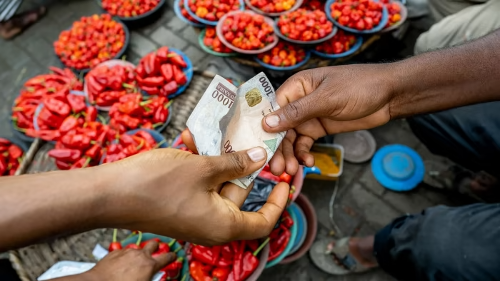Inflation in key African economies expected to slow into next year

TLDR
- Inflation projections for key African economies show varying trends, with Nigeria expected to accelerate to 29.1% this year before moderating to 17.2% next year.
- Kenya's inflation forecast is relatively subdued, with an average of 5.6% projected for next year compared to 6.3% this year.
- Ghana anticipates a significant decrease in inflation from 40.3% last year to 18.7% this year and further to 12.1% in 2025.
A recent Reuters poll indicates that inflation in key African economies is projected to decelerate into the next year. Inflation in Nigeria is expected to accelerate to 29.1% this year from an average of 24.5% in the previous year, before moderating to 17.2% in the following year.
In contrast, Kenya's inflation is forecasted to remain relatively subdued compared to other regional economies apart from South Africa, with an average of 5.6% projected for next year compared to 6.3% this year. Similarly, Ghana's inflation is anticipated to decrease significantly from an average of 40.3% last year to 18.7% this year and further to 12.1% in 2025.
Angolan inflation is expected to slow to last year's average of 13.6% by the next year from 23.7% projected for this year, while Zambia is anticipated to see a decline in inflation to 8.0% in 2025 from 12.3% this year.
Key Takeaways
The acute scarcity of dollars in many African countries, including Angola, Nigeria, and Zambia, has frequently exerted substantial pressure on domestic inflation. This challenge stems from a heavy dependence on single commodity currency inflows, such as crude oil in Nigeria and Angola, and copper in Zambia. Despite this, a recent poll of 15 analysts conducted in the past week suggests that inflation is expected to moderate more in countries with more diversified sources of dollar revenues, such as Kenya. Kenya's economy benefits from a broader range of export sectors, including agriculture, tourism, and manufacturing, which contribute to a more resilient and diversified revenue base. The findings of the poll underscore the importance of economic diversification in mitigating inflationary pressures and enhancing overall economic stability. By reducing reliance on single commodity exports and diversifying revenue sources, countries can better withstand external shocks and manage inflation more effectively.

Next Frontier
Stay up to date on major news and events in African markets. Delivered weekly.
Pulse54
UDeep-dives into what’s old and new in Africa’s investment landscape. Delivered twice monthly.
Events
Sign up to stay informed about our regular webinars, product launches, and exhibitions.




